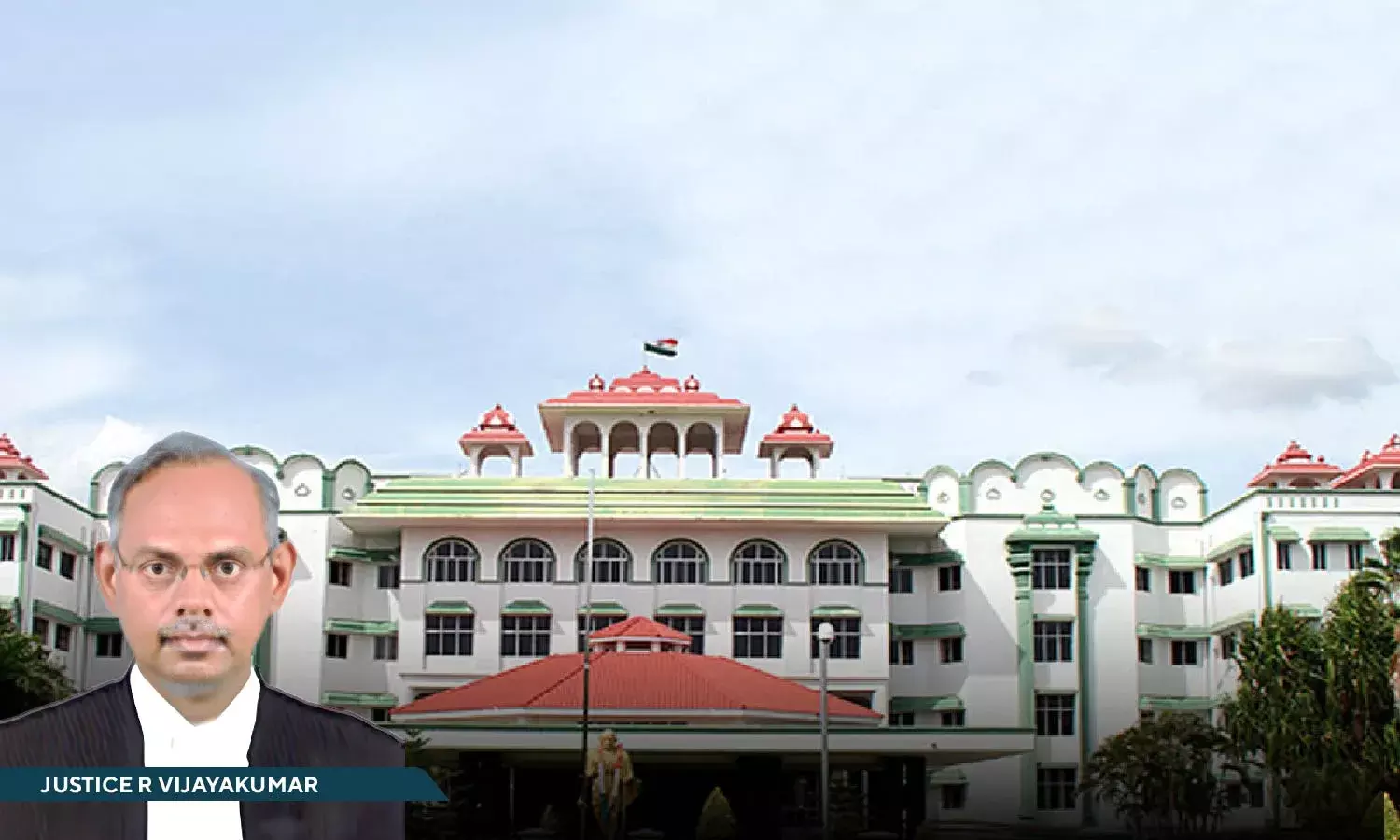Madras High Court: Conditions For Exemption Granted To PF Scheme Can’t Be Invoked To Deny Benefits To Employee Under Statutory Pension Scheme
The Madras High Court observed that the conditions imposed while granting exemption to one scheme cannot be kalideoscoped into another scheme for which no exemption has been granted under the statute.

Justice R. Vijayakumar, Madras High Court, Madurai Bench
The Madras High Court held that the conditions for the exemption granted to the Provident Fund (PF) Scheme cannot be invoked to deny the benefits to an employee under the Statutory Pension Scheme (SPS).
The Madurai Bench was deciding a batch of six Writ Petitions filed by 86 former employees of BHEL (Bharat Heavy Electricals Limited), Trichy challenging the orders issued by the EPFO (Employee's Provident Fund Organisation) to the individual employees.
A Single Bench of Justice R. Vijayakumar observed, “… the Trust rules framed under the Employees' Provident Fund Scheme cannot be cited to deny the benefits under the Employees' Pension Scheme. Admittedly, the 5th respondent establishment has not been exempted under the Employees' Pension Scheme as contemplated under Rule 39 of the said scheme. The conditions for the exemption granted to the PF Scheme cannot be invoked to deny the benefits to an employee under the Statutory Pension Scheme.”
The Bench added that the conditions imposed while granting exemption to one scheme cannot be kalideoscoped into another scheme for which no exemption has been granted under the statute.
Advocate G. Srinivasan represented the Petitioners while Advocates D. Kesevan, N. Dilip Kumar, and M. Raghuvaran Gopalan represented the Respondents.
Factual Background
EPFO had issued some orders to the individual employees in March 2024 wherein it had recalled a demand notice issued by them for payment of contribution along with applicable interest for higher pension. The Petitioners also challenged a circular of EPFO issued in January 2025 wherein the exempted establishments were not permitted to amend the Trust Rules with retrospective effect so as to bring the Trust Rules in consonance with the Supreme Court in Employees' Provident Fund Organisation and Another v. Sunil Kumar B and Others (2022). Another order of EPFO was challenged wherein the joint option request submitted by the employees to avail the benefits of higher pension were rejected primarily relying upon the Trust Rules applicable to the exempted organisation namely BHEL, Trichy.
The BHEL, Trichy is an establishment exempted under Section 17 of the Employees' Provident Funds and Miscellaneous Provisions Act, 1952, from the purview of the Employees' Provident Funds Scheme, 1952. In view of the exemption, the Provident Funds Scheme is being administered by a Trust. The terms and conditions of the exemption are governed by the Appendix 'A' as found in Paragraph 27-AA of the Employees' Provident Funds Scheme 1952. However, the employees of the BHEL are continued to be governed by the Statutory Employees' Pension Scheme, 1995.
Reasoning
The High Court in the above context of the case, said, “… if any amendment is introduced to the Provident Fund Scheme and it is more beneficial to the employees, it becomes automatically applicable to the employees, even without a formal amendment of the Trust Rules.”
The Court was of the view that the Respondents cannot rely upon the unamended Trust Rules which is clearly in violation of the statutory condition No.10 under Appendix 'A' in paragraph 27-AA of the Provident Fund Scheme.
“It is an admitted fact that right from the beginning the establishment is governed under the Statutory Pension Scheme. The benefits of the said Statutory Pension Scheme cannot be denied citing the Trust Rules, which are applicable only to the Provident Fund Scheme. When the statute provides for a beneficial scheme(receiving higher pension based on remittance on actual wages) the same cannot be taken away from the employee unless there is a statutory bar for claiming the same”, it noted.
The Court remarked that, even assuming that there is a prohibition in the Trust Rules for making higher contribution (based on actual wages) to the Pension Scheme, the same could only be construed to be a contract in violation of the statutory provision, which would be void in the eyes of law and therefore, the reliance placed upon by the Respondent authorities on the Trust Rules is not legally sustainable in the eyes of law.
“The circular issued by the respondents on 18.01.2025 cannot be a violation of the order passed by the Hon'ble Supreme Court in Sunil Kumar case. Hence, the same is liable to be set aside”, it concluded.
The Court also directed that on remittance of the differential contribution amount to the pension scheme, to the EPFO, by the employees, along with applicable interest, higher pension shall be disbursed to them from the succeeding month of their remittance.
Accordingly, the High Court allowed the Writ Petitions to an extent and set aside the impugned orders.
Cause Title- D. Chandirasegar & Ors. v. Union of India & Ors. (Case Number: W.P.(MD)Nos.29573 to 29578 of 2024)


